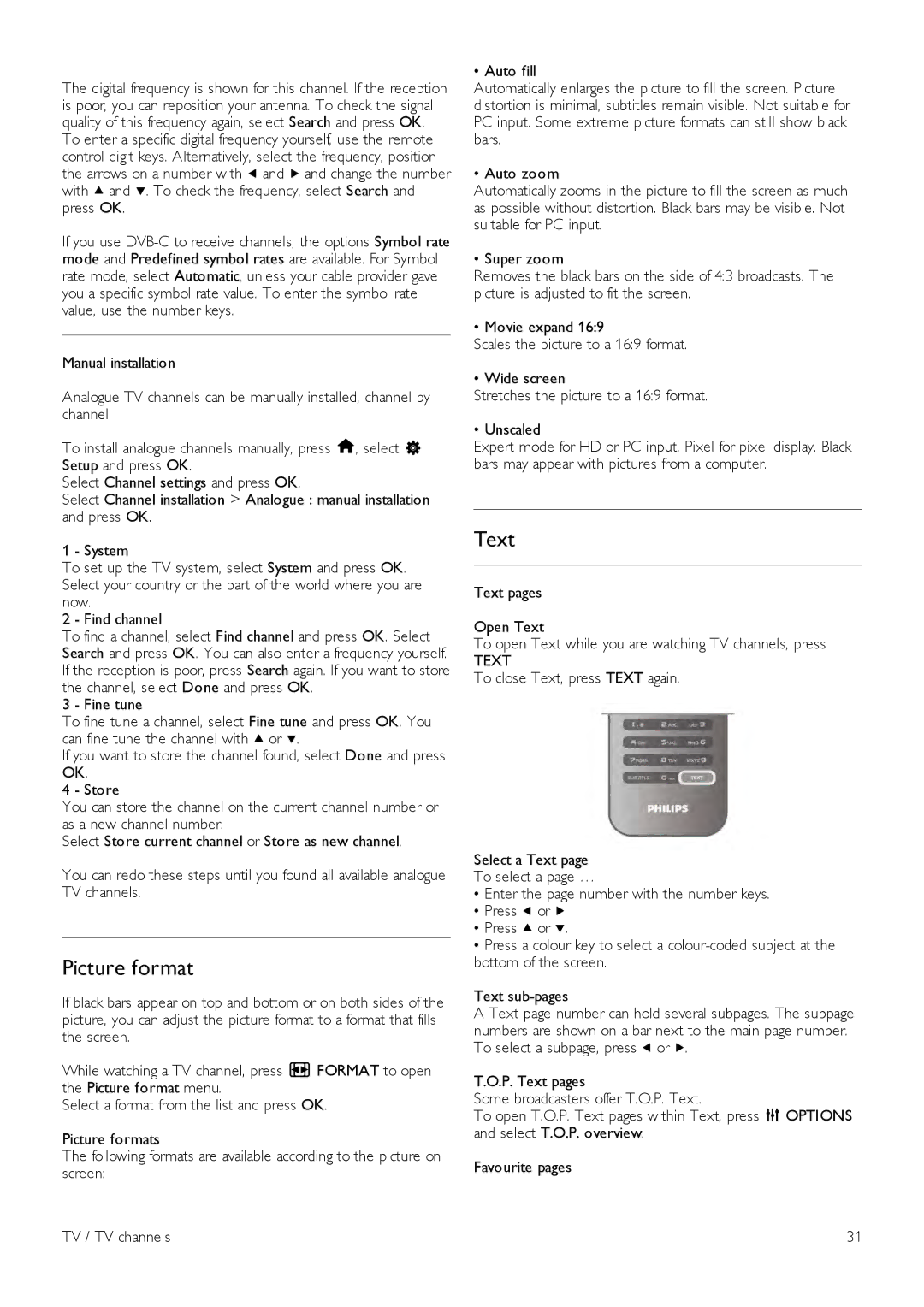
The digital frequency is shown for this channel. If the reception is poor, you can reposition your antenna. To check the signal quality of this frequency again, select Search and press OK. To enter a specific digital frequency yourself, use the remote control digit keys. Alternatively, select the frequency, position the arrows on a number with w and x and change the number with u and v. To check the frequency, select Search and press OK.
If you use
Manual installation
Analogue TV channels can be manually installed, channel by channel.
To install analogue channels manually, press h, select S Setup and press OK.
Select Channel settings and press OK.
Select Channel installation > Analogue : manual installation and press OK.
1 - System
To set up the TV system, select System and press OK. Select your country or the part of the world where you are now.
2 - Find channel
To find a channel, select Find channel and press OK. Select Search and press OK. You can also enter a frequency yourself. If the reception is poor, press Search again. If you want to store the channel, select Done and press OK.
3 - Fine tune
To fine tune a channel, select Fine tune and press OK. You can fine tune the channel with u or v.
If you want to store the channel found, select Done and press OK.
4 - Store
You can store the channel on the current channel number or as a new channel number.
Select Store current channel or Store as new channel.
You can redo these steps until you found all available analogue TV channels.
Picture format
If black bars appear on top and bottom or on both sides of the picture, you can adjust the picture format to a format that fills the screen.
While watching a TV channel, press f FORMAT to open the Picture format menu.
Select a format from the list and press OK.
Picture formats
The following formats are available according to the picture on screen:
• Auto fill
Automatically enlarges the picture to fill the screen. Picture distortion is minimal, subtitles remain visible. Not suitable for PC input. Some extreme picture formats can still show black bars.
• Auto zoom
Automatically zooms in the picture to fill the screen as much as possible without distortion. Black bars may be visible. Not suitable for PC input.
• Super zoom
Removes the black bars on the side of 4:3 broadcasts. The picture is adjusted to fit the screen.
• Movie expand 16:9
Scales the picture to a 16:9 format.
• Wide screen
Stretches the picture to a 16:9 format.
• Unscaled
Expert mode for HD or PC input. Pixel for pixel display. Black bars may appear with pictures from a computer.
Text
Text pages
Open Text
To open Text while you are watching TV channels, press TEXT.
To close Text, press TEXT again.
Select a Text page
To select a page …
•Enter the page number with the number keys.
•Press w or x
•Press u or v.
•Press a colour key to select a
Text
A Text page number can hold several subpages. The subpage numbers are shown on a bar next to the main page number. To select a subpage, press w or x.
T.O.P. Text pages
Some broadcasters offer T.O.P. Text.
To open T.O.P. Text pages within Text, press o OPTIONS and select T.O.P. overview.
Favourite pages
TV / TV channels | 31 |
